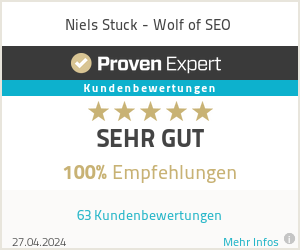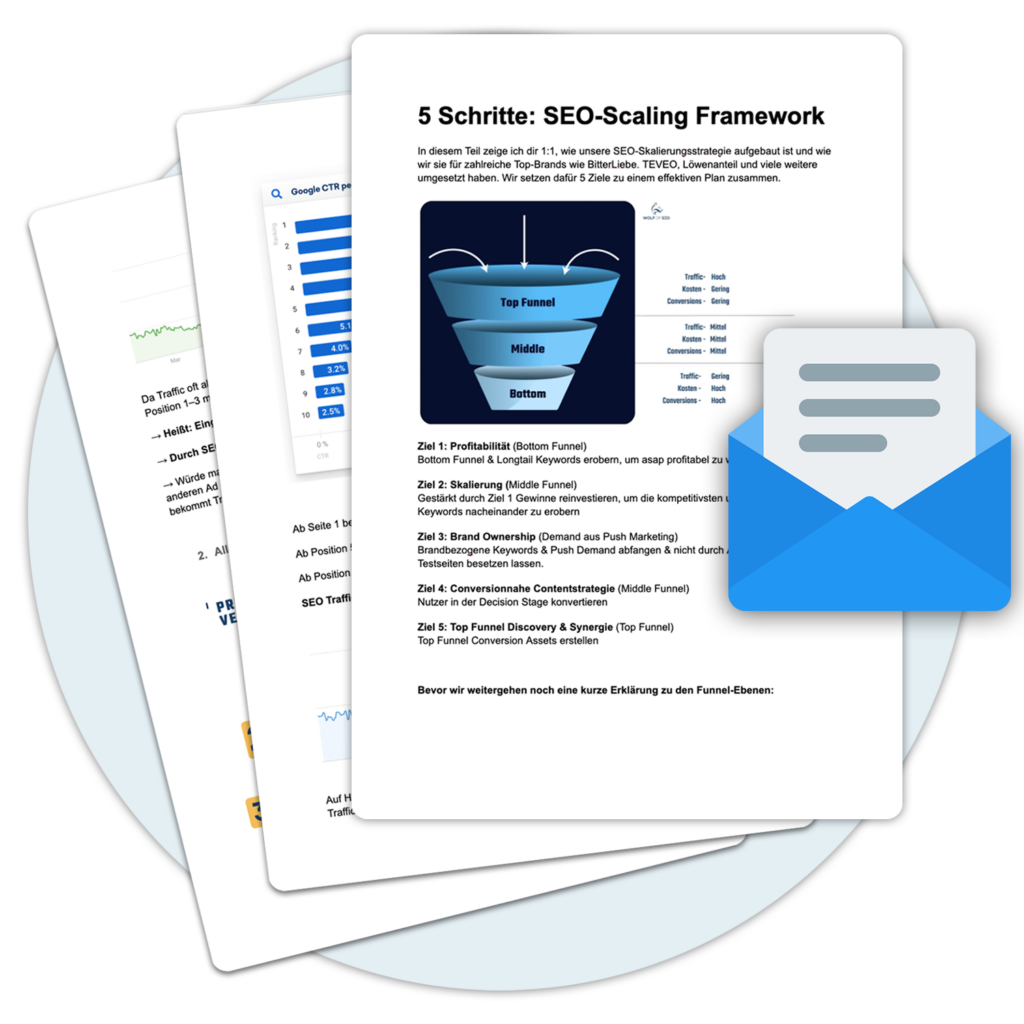Introduction to Affinity Marketing
At Affinity Marketing is about specifically leveraging the connections and relationships between target groups and a brand or product. Here, the focus is not only on sales, but rather on creating an emotional bond and loyal customers. The Affinity Marketing assumes that people are more likely to identify with something if it has a personal or emotional connection to them.
With Affinity Marketing companies can deepen the relationship with their customers and be successful in the long term. By creating a common ground with their customers and meeting their needs and values, they can build a strong bond. This is not just about promoting the product or service, but rather about making customers feel part of a community or a movement.
There are several approaches to Affinity Marketing to operate. A frequently used approach is to sponsor events or projects that appeal to the target group. This allows companies to build a positive association with their brand and attract the attention of potential customers. erlangen. Another option is to work with influencers who have a large following and therefore a strong connection to their target group.
At Affinity Marketing it is important to know the target group precisely and to understand what values and needs it has. This is the only way to develop suitable marketing activities that create an emotional connection and bind customers to the company in the long term. The key is to see customers not just as consumers, but as part of a community that identifies with the brand's values and goals.
Why is Affinity Marketing important?
Affinity Marketing is an effective strategy for creating a strong connection between a brand and its target audience. This type of marketing aims to target customers who already have a high level of interest in the brand's products or services. By targeting customers with similar interests and preferences in this way, companies can personalize their marketing messages and better address the needs of their target audience.
The importance of affinity marketing lies in stronger customer loyalty and better customer acquisition. When customers feel that a brand understands and addresses their interests and preferences, they are more likely to engage with the brand and purchase its products or services. By addressing customers in this personalized way and building an emotional connection, companies can increase customer loyalty and build long-term customer relationships.
Through targeted Affinity Marketing companies can also attract new customers. Customers tend to trust other people with similar interests and preferences. If a brand has a strong presence in a particular affinity segment and receives positive recommendations and reviews there, potential customers can be more easily convinced to try the brand's products or services.
Another important significance of affinity marketing lies in increasing brand awareness and identification. If a brand has an affinity with certain values, hobbies or lifestyles of its target group and emphasizes this in its marketing communications, customers can develop a closer bond with the brand and identify more strongly with it. This increases brand awareness and the likelihood that customers will recommend the brand to others.
Overall Affinity Marketing important to better address customers who already have a high level of interest in a brand, as well as to attract new customers who have similar interests and preferences. By addressing customers in a personalized way and emphasizing a common affinity with the target group, companies can increase customer loyalty, acquisition, and brand awareness.
How does Affinity Marketing work?
Affinity Marketing is a marketing strategy in which companies try to attract and retain customers by catering to the interests and preferences of their target group. The aim is to create an emotional connection between the company and its customers and thus build a long-term relationship.
To Affinity Marketing effectively, it is important to know the exact needs and wishes of the target group. Extensive market research and analysis of customer data and behavior can be helpful for this. Using this information, companies can develop personalized marketing strategies tailored to customers' individual preferences and interests.
An important basis of affinity marketing is to find a common ground between the company and the target group. This can be, for example, a common area of interest, a certain lifestyle, or a shared set of values. By emphasizing and targeting this common ground, the company can build a strong bond with the target group.
Another aspect of affinity marketing is to bind customers to the company in the long term through special offers and promotions. By rewarding customers with exclusive benefits or giving them access to special events or content, they feel particularly valued and have an incentive to remain loyal to the company.
In the following, the most important points are once again Affinity Marketing summarized in a clear table:
| Advantages of Affinity Marketing | Examples for Affinity Marketing | Tip for successful Affinity Marketing |
|---|---|---|
| Long-term customer loyalty | Membership programs, customer clubs | Regular communication with the target group |
| Emotional bond with the company | Support for charitable projects | Convey authenticity and genuineness |
| High customer loyalty | Personal recommendations and partnerships | Continuous further development of the marketing strategy |
Steps to implement Affinity Marketing
Affinity Marketing is an effective strategy for winning customers and retaining them in the long term. By targeting customer groups that already have an interest in certain topics or products, a strong affinity for the brand can be built. To Affinity Marketing successfully, the following steps should be followed:
- Target Group Analysis: Before you start Affinity Marketing starts, it is important to analyze the target groups precisely. What interests and needs do the potential customers have? Which topics or products might appeal to them? Through a detailed target group analysis, you can determine the right affinity and develop the appropriate marketing strategy.
- Build partnerships: Affinity Marketing works best through collaborations with other companies or influencers who already have a strong affinity with the target group. Joint actions or advertising campaigns can help both parties attract new customers and increase their Range to grow. It is important to select partners that address a similar target group in order to achieve the best possible results.
- Content create: In order to strengthen customer affinity, it is important to create relevant and appealing Content to create. This can take the form of blog posts, videos, podcasts or social media posts. The Content should address the interests and needs of the target group and offer added value. High-quality content can create long-term customer loyalty to the company.
- Personalization: Affinity Marketing is based on addressing customers individually. Personalized advertising measures, such as personalized e-mails or product recommendations, can further strengthen customers' affinity. Personalized offers make customers feel understood and taken seriously, which promotes long-term loyalty to the company.
- Success measurement and optimization: After the implementation of the Affinity Marketing success should be measured and analyzed regularly. Which measures have produced the desired results? Where is there still potential for optimization? Through continuous monitoring and adjustment of the strategy, the Affinity Marketing be successful in the long term.
Case studies of successful Affinity Marketing campaigns
The Affinity Marketing is an effective and strategic way to target a specific audience and build long-term customer relationships. The following are some case studies of successful Affinity Marketing campaigns presented that show how companies can benefit from this strategy.
Case study 1: Automobile manufacturer
A well-known automobile manufacturer has a Affinity Marketing campaign was launched to attract new customers and strengthen the loyalty of existing customers. Through a targeted partnership with a renowned tour operator, attractive discounts were offered for travel and hotels. This created an emotional connection to the brand and customers were willing to share their experiences with others. This led to an increase in brand awareness and increased demand for the automaker's vehicles.
2nd case study: sportswear manufacturer
A sportswear manufacturer has Affinity Marketing to win sports clubs as partners in a targeted manner. Through special offers and customized training programs for club members, a close connection was established with the target group. This cooperation not only led to increased brand loyalty, but also to an increase in sales figures. Club members became brand ambassadors who actively passed on their positive experiences with the sportswear.
| Case study | Affinity Marketing Strategy | Result |
|---|---|---|
| Automobile manufacturer | Partnership with tour operator | Increase brand awareness and demand |
| Sportswear manufacturer | Cooperation with sports clubs | Increased brand loyalty and sales figures |
In these case studies, it becomes clear how the Affinity Marketing can help companies address their target groups emotionally and build long-term customer relationships. Through the targeted selection of partners and the creation of attractive added value for the target group, positive experiences can be created and recommended to others. This not only strengthens brand loyalty, but also increases demand for products or services. Affinity Marketing is thus an effective strategy for achieving customer loyalty and increasing sales.
Advantages of Affinity Marketing
The Affinity Marketing offers a variety of benefits for companies that want to reach their target audience in an effective way.
1. increased targeting accuracy: Through the Affinity Marketing companies can address their messages directly to people who have already shown an interest in similar products or services. This increases the likelihood that the target group will actually be addressed and have specific purchase intentions.
2. improved customer loyalty: By appealing to a target group with common interests, companies can build a stronger bond with their customers. By making customers feel that their needs and preferences are important to them, companies can build long-term customer relationships and increase customer loyalty.
3. more efficient use of resources: Affinity Marketing enables companies to target their marketing resources more effectively. Instead of running broad marketing campaigns, they can focus their efforts on a specific target group, resulting in more efficient use of time, money and manpower.
4. increased Relevance: By addressing the target group with affinity-based messages, the Relevance of the offer is increased. Customers are more likely to feel understood and addressed if they feel that a company shares and understands their interests. This increases the likelihood that customers will respond to the offer and make purchasing decisions.
Overall, the Affinity Marketing an effective way to target the right audience, build customer loyalty, use resources more efficiently, and increase the Relevance of the marketing messages. Companies should integrate this strategy into their online marketing strategies to achieve long-term success.
Strengthening the brand relationship
A strong brand relationship is of great importance to companies, as it promotes customer trust and loyalty. Through targeted Affinity Marketing the brand relationship can be strengthened and intensified.
Various measures can be taken to improve customer loyalty:
- Personal Address: By addressing customers by their name, the company makes them feel individually noticed and valued.
- Customer Service: Providing excellent customer service that goes above and beyond expectations helps build a positive brand relationship.
- Communication: Regular communication with customers, e.g. through newsletters or social media, helps to maintain the connection to the brand.
- Personalization: Through personalized offers and recommendations, the company can show that it knows the individual needs and preferences of its customers.
- Special actions: Exclusive offers, competitions or events for regular customers strengthen brand loyalty and create positive experiences.
Additionally also Collaborative marketing be used to strengthen the brand relationship. Synergies can be exploited and cross-promotional opportunities created through a strategic partnership with another brand.
| 1. customer loyalty | Regular customers who have a strong relationship with the brand are more likely to buy more of the company's products or services. |
|---|---|
| 2. word of mouth | Satisfied customers who have a close relationship with the brand are more likely to recommend it to others, which leads to positive word-of-mouth advertising. |
| 3. price elasticity | Customers with a strong brand relationship are often less price-sensitive and willing to accept a higher price for products or services. |
| 4. competitive differentiation | A strong brand relationship can help set you apart from the competition and give you a unique position in the market. |
Improved customer engagement
With Affinity Marketing companies can achieve improved customer engagement. By targeting marketing activities to the interests and preferences of the target group, customers are addressed in a more personal way. This leads to customers developing a stronger emotional bond with the brand and identifying more strongly with it.
To further increase customer engagement, companies can use various affinity marketing strategies. Some possibilities are:
- Sponsorship of events or organizations that are appreciated by the target group
- Partnerships with influencers or celebrities who have a high affinity with the target group
- Personalization of marketing campaigns to address individual customer needs and interests
- Integration of user-generated content to actively involve customers in the marketing process
By improving customer engagement, companies can build long-term customer bonds and strengthen customer loyalty. Customers who feel connected to a brand are more likely to recommend that brand to others and make repeat purchases of products or services. Improved customer engagement thus brings long-term business benefits.
Disadvantages of Affinity Marketing
Although the Affinity Marketing offers many advantages, there are also some disadvantages that should be taken into account. The following are the main disadvantages of the Affinity Marketing explained in more detail:
- Dependence on cooperation partners: In the Affinity Marketing one is dependent on cooperation with other companies. This means that one is also dependent on the decisions and actions of the cooperation partners. If a cooperation partner changes its strategy or has problems, this can also have an impact on one's own Affinity Marketing have
- Restriction to a target group: By working closely with a specific partner or group of partners, the Affinity Marketing also only to a specific target group. This can result in potential customers from other target groups not being reached, thus limiting the growth and success of the marketing.
- Difficulty measuring success: Compared to other marketing strategies, measuring success with the Affinity Marketing be more difficult. It is often more complex to measure the exact impact of collaborative partners and their activities on the success of your own marketing efforts. This can make it more difficult to determine ROI (return on investment) and assess the effectiveness of affinity marketing.
- Risk of over-exclusivity: if you focus too much on one particular partnership in the Affinity Marketing focuses, there is a danger of over-exclusivity. This means that one becomes too dependent on a single partner and thus susceptible to possible changes or problems of that partner.
Despite these disadvantages, the Affinity Marketing yet interesting opportunities for companies to effectively reach their target audience and strengthen their brand. It is important to weigh the pros and cons and choose the appropriate marketing strategy for the individual company.
Potential challenges with affinity marketing
Affinity Marketing is undoubtedly an effective strategy for targeting the right audience and increasing brand awareness. However, there are also potential challenges that should be considered when implementing this marketing method.
One of these challenges is to find the right affinity for the target group. It is important to thoroughly analyze the interests and preferences of potential customers to ensure that the selected affinity is actually relevant and has retention potential. If the selected affinity does not fit the target group, this can lead to low interest or even rejection.
Another obstacle can be identifying the right collaboration partners. Affinity Marketing is often based on partnerships with brands or influencers who already have a strong affinity with the target group. However, it can be difficult to find the right partners who not only fit the target group, but are also credible and trustworthy.
The measurability of success is also a potential challenge in the Affinity Marketing. Compared to other marketing strategies, it can be more difficult to measure the exact contribution of affinity marketing to sales or customer retention. It requires careful analysis of data and clear definition of goals to evaluate the success of this marketing method.
Summary and conclusions
Affinity marketing allows companies to optimize their marketing strategies and target their audiences. By focusing not only on demographic information, but also on their customers' interests and preferences, they can create relevant content and send personalized messages that increase customer engagement and conversion rates.
The benefits of affinity marketing are many. Companies can increase sales and expand their customer base by targeting specific interests and offering relevant products or services. By using affinity data, companies can use their marketing budgets more efficiently by serving their ads only to people who have a genuine interest in what they have to offer.
However, successful affinity marketing requires a thorough knowledge of the target group and its interests. Companies need to get to know their customers well and analyze their buying behavior in order to collect relevant affinity data. This can be done by means of surveys, interviews or the use of analysis tools.
It is also important for companies to adapt and personalize their marketing messages to the different customer segments. By creating relevant and engaging content, companies can capture the interest of their target audience and increase their brand awareness.
Overall, affinity marketing can be an effective strategy for targeting customers and building long-term relationships. By targeting people with similar interests and preferences, companies can make the most of their marketing budget and increase their chances of success.
« Back to Glossary Index





 By
By 